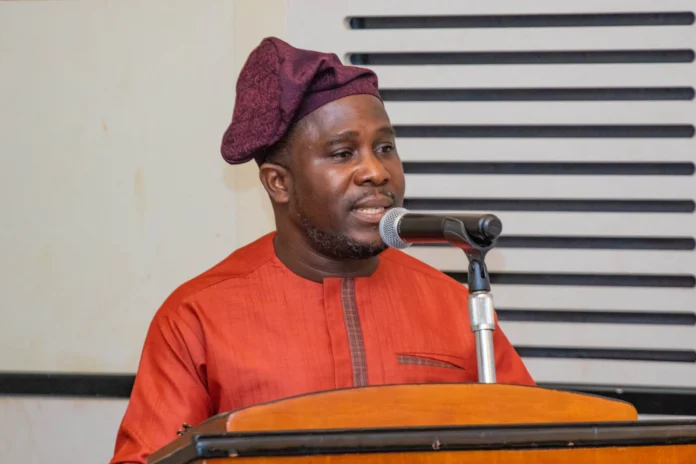The Institute for Energy Security (IES) has cautioned management of the Electricity Company of Ghana (ECG) that inconsistencies in its excuses over the recent power outages may dent the reputation of the power distributor.
The energy watchdog, in a statement dated April 1, 2024, said that it is “scandalised by this misleading statement, and the inconsistencies in ECG’s public releases relative to the recent power outages being recorded across the country.”
The power distributor, in a March 29 statement, announced that “The Electricity Company of Ghana wishes to inform our cherished customers and the general public that we have a stable national power supply (stable national grid).”
But according to the IES, the ECG sought to equate a “stable national power supply” to a “stable national grid,” both of which are non-existent in our present power sub-sector.
The statement further noted that “The IES is appalled by the extent to which the ECG is permitting the powers that be to frustrate its eligible business and to embarrass itself in the eye of the public.”
“These public relations (PR) gimmicks by the ECG are unwarranted, disgusting, and diversionary; capable of denting the reputation and credibility of the institution,” it added.
IES also called on the Ghana Grid Company Limited (GRIDCo) to break its silence in the ongoing power outages, stating, “Unfortunately, GRIDCo has gone mute, an attitude uncharacteristic of the entity.”
Below is the full statement from IES:
“THE INCONSISTENCIES IN ELECTRICITY COMPANY OF GHANA’S (ECGs) EXCUSES MAY DENT ITS REPUTATION”
IES’ Observations
The attention of the Institute for Energy Security (IES) has been drawn to yet another statement from the Electricity Company of Ghana (ECG), which states that “The Electricity Company of Ghana wishes to inform our cherished customers and the general public that we have a stable national power supply (stable national grid).”
The IES is scandalised by this misleading statement, and the inconsistencies in ECG’s public releases relative to the recent power outages being recorded across the country.
In the recent statement, the ECG sought to equate “stable national power supply” to “stable national grid,” both of which are non-existent in our present power sub-sector.
The IES is appalled by the extent to which the ECG is permitting the powers that be to frustrate its eligible business and to embarrass itself in the eye of the public. These public relation (PR) gimmicks by the ECG are unwarranted, disgusting, and diversionary; capable of denting the reputation and credibility of the institution.
In any case, how can we have a stable national power supply when since the start of the year, the ECG barely receives from GRIDCo 85% of power required to fully meet the demand of its customers. Again, one wonders the capacity of the ECG to confidently suggest that Ghana has a stable national grid.
Where the power sector finds itself today, the best utility to speak to issues of power supply stability and grid stability Is the system operator the Ghana Grid Company Limited (GRIDCo). Unfortunately, GRIDCo has gone mute, an attitude uncharacteristic of the entity.
IES’ Demands
- The Ghana Grid Company Limited (GRIDCo) must break its silence on happenings in the power sector and be willing to indicate to the Electricity Company of Ghana (ECG) the quantum of power that could be made available to the ECG within a set time frame. Such an information is vital for the ECG to plan its load response with a timetable.
- The ECG must concern itself with its load management based on the quantum of power made available by GRIDCo, as well as its effective mobilisation of revenue; necessary to prove full cost recovery.
- The Public Utility and Regulatory Commission (PURC) must look beyond the ECG to audit the upstream segment of the power sub-sector, particularly the GRIDCo, and export sales by the Volta River Authority (VRA).
- The Minister of Energy, and by extension, the government must allow the ECG to freely deliver its mandate without the usual political interference. The best intervention Ghanaians can expect from government at this critical moment is to cause the ECG and GRIDCo to cooperate so a load-shedding timetable can be issued as expected by Ghanaians.
Thank you.
SIGNED
NANA AMOASI VII
EXECUTIVE DIRECTOR, IES


